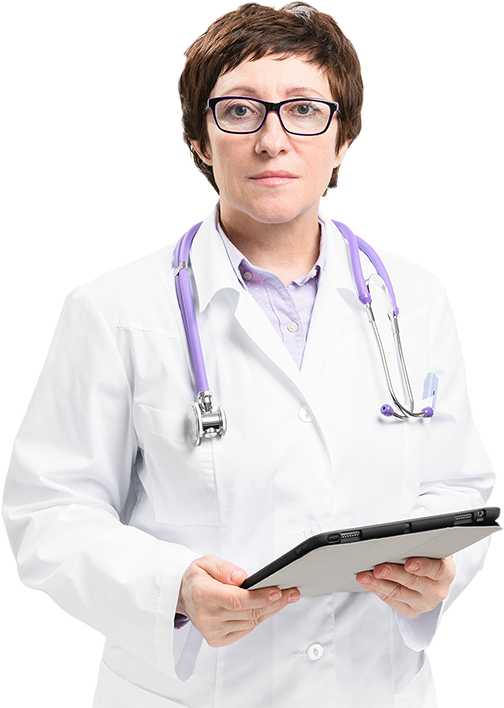About Symptoms of Herpes
You may feel anxious when you learn you are experiencing Herpes symptoms. You can be worried about your health, your future ambitions, or your personal relationship. Your fear is most likely based on what you’ve heard about Herpes, much of which is incorrect. For your convenience, we’ve provided some valuable facts to help you grasp the realities of Herpes symptoms.
Learn how to recognize the signs and symptoms of Herpes and how to make a complete recovery.
About Herpes Symptoms
What is Herpes?
Herpes is a relatively common sexually transmitted disease (STD). It is caused by the Herpes Simplex Virus Type-1 (HSV1) or Herpes Simplex Virus Type-2 (HSV2) (HSV2). HSV1 is referred to as oral herpes because it can produce fever blisters and cold sores around the mouth, whereas HSV2 is referred to as genital herpes. Despite the fact that both Herpes viruses can cause oral and genital herpes, they infect the mouth and genitals in different ways.
Genital herpes affects one out of every six people in the United States aged 14 to 49, according to the Centers for Disease Control and Prevention. Oral herpes has become much more widespread in recent years. Herpes symptoms are frequently minimal or non-existent.
About Herpes Symptoms
Taking a Closer Look at Herpes Symptoms
People with Herpes may go months or even years without showing any signs or symptoms of the virus because outbreaks don’t always stay long. Years can pass before an outbreak occurs! Others have described Herpes as crafty or cruel. Getting tested on a regular basis is the easiest way to avoid catching the virus.
Sores and blisters in and around the mouth and genitals are some of the first Herpes symptoms people experience. Blisters can burst and become painful sores. Vaginal, penis, cervix, anus, buttocks, and inner thigh blisters are prevalent.
Absence of symptoms is the most common symptom for both men and women. When Herpes signs do arise, men and women frequently react differently.
Many people are unaware of herpes’ indications and symptoms. For your convenience, we’ve provided a list of common male and female symptoms below.
About Herpes Symptoms
Symptoms of Herpes in Women
Among women, the following are the most prevalent symptoms:
- Sores, ulcers, or blisters on the anus, thighs, or buttocks
- Blisters and sores on or around the vagina, vulva, or cervix
- Vaginal discharge
- Itchiness in the vaginal area
- Painful urination
- Meningitis
- Headache
- Body ache
- Fever
- Fatigue
- Eczema herpetiform
- Eye infection
- Swollen lymph nodes
- Difficulty urinating
- Encephalitis
Your HSV status can only be accurately diagnosed by a medical practitioner. Other disorders, such as syphilis, can have similar symptoms, therefore it’s critical to get evaluated as soon as possible.
About Herpes Symptoms
Symptoms of Herpes in Men
The following are the most common symptoms among men:
- Sores, ulcers, or blisters on the anus, thighs, or buttocks
- Swollen lymph nodes
- Blisters or sores on the penis
- Fever
- Fatigue
- Headache
- Body ache
- Meningitis
- Eye infection
- Eczema herpetiform
- Encephalitis
The symptoms listed below are the most common among Only a doctor can accurately assess your HSV status. Other disorders, such as syphilis, can present with similar symptoms, therefore it’s crucial to get evaluated as soon as possible.
About Herpes Symptoms
Preventing Herpes
Knowing how they spread, like other STDs, is the most effective approach to avoid transmission. A quick kiss is all it takes to contract HSV1. This means that parents can easily transmit HSV1 to their children. The HSV1 virus is the more frequent of the two Herpes viruses. When sores are open and wet, HSV1 is the most contagious, and it is frequently distributed without the carrier realizing it because no symptoms are evident.
HSV2 is transmitted in the same way as HSV1 is: by sexual contact, whether vaginally, anally, or orally. Intercourse is not required when Herpes is contracted, but it does increase your risk.
The Herpes virus, fortunately, does not survive long outside the body. This entails
About Herpes Symptoms
Getting Tested for Herpes
Many emotions can occur while thinking about testing, but remembering the advantages of testing can help to ease some of those feelings. HSV1 and HSV2 are detected with the Herpes IgM test, which requires only a simple blood sample. If HSV antibodies are identified in your blood, you will receive a positive result. The testing is quite precise, but antibodies must be present for at least 10 days after exposure. If you test sooner than the recommended ten days, you may get a false negative.
About Herpes Symptoms
What is the Treatment for Herpes?
Although there is currently no cure for HSV, afflicted persons can lead normal and happy lives. Antiviral medications can be recommended by a doctor to assist prevent and shorten outbreaks, as well as limit the progression of symptoms experienced by people with Herpes.
About Herpes Symptoms
Herpes and Other Sexually Transmitted Diseases
People who have Herpes usually wonder if they will contract additional STDs. While there is no evidence that Herpes symptoms raise your risk of developing other STDs, open sores on or around the genitals can increase your risk of contracting Hepatitis B or HIV. You could also be more vulnerable to infections spread through the blood. Keep in mind, though, that experiencing breakouts increases your chances of infecting others with Herpes. Practice safe sex and strive to live a healthy lifestyle to best protect yourself and your loved ones.
About Herpes Symptoms
Overcoming Herpes' Mental and Emotional Consequences
As previously said, herpes is a common virus, but even the most mundane events can cause a great lot of emotional and mental distress. When Herpes symptoms appear and are verified by testing, support groups and mental health professionals can help to alleviate the unpleasant feelings that often accompany them. Maintaining a positive attitude and working toward a healthy lifestyle will help you reduce your stress levels dramatically.
About Herpes Symptoms
Having a Conversation with Your Partner About Herpes
You, like many others, may be concerned about the impact a Herpes infection would have on your marriage (s). The prospect of spreading the sickness to people you love and care about can be terrifying. The good news is that there is light at the end of the tunnel. Millions of individuals can relate to what you’re going through because they’ve been there.
Many Herpes patients lead happy and busy love lives.
Talking to your partner(s) about your problems can be challenging, but it is the best thing you can do for those you care about. Inform former and current partners about your Herpes infection so that they can be informed and tested as needed. Tell them all you’d want to know if you were in their position. This will assist them understand Herpes, the symptoms it causes, the treatments available, and how you’re feeling. They are most likely ignorant of the genuine nature of Herpes.
Patience is necessary. Your partner(s) may need some time to process the information. Tell them how you’re treating Herpes and preventing it from spreading.
About Herpes Symptoms
Pregnancy and Herpes
It’s critical to comprehend the risks of becoming pregnant when suffering with Herpes. A baby could contract genital Herpes while traveling through the birth canal. Infection in babies can cause significant eye infections and brain damage. During the birthing process or while in the womb, the child is not at risk for Oral Herpes. It’s possible that mothers who have had genital Herpes and are now experiencing an outbreak will pass the virus on to their children, although the chances are minimal. If you’re one of these women, your doctor may recommend a C-section to guarantee the safety of your baby.
To protect yourself and your baby, discuss your symptoms with your doctor and get tested as soon as possible.






Do you want to find out how to get tested for STDs in our labs?
There is no paperwork to complete. Quick and Private Decision Making Free and Private STD Testing


Choose Your Test
At our test center, getting tested for STDs is a simple and quick process. Ordering tests is done over the phone or online. Monday through Friday, with some locations offering Saturday testing.


Visit A Lab Center
There will be no need to wait, fill out papers, or schedule an appointment; you will be in and out in minutes.


Get Your Results
Your test results will be available in your online account within 1-2 days.
Get Tested Now!
No appointments are necessary. STD Testing is completely confidential.
Our private STD testing laboratories give thorough and accurate findings. In 24 to 48 hours, the order, test, and results are available online. Right now, take a test! The Food and Drug Administration has given their approval. Completely confidential. Alternative treatments are available.
Complete anonymity is guaranteed. FDA-Approved/Cleared. Your findings will be available in 24-48 hours.
- Chlamydia & Gonorrhea
- Early Detection HIV
- Hepatitis A
- Hepatitis B
- Hepatitis C
- Early Detection Syphilis
- HIV 1 & 2 (Fourth Generation)
- Herpes type-1
- Herpes type-2










STD Testing in New York City
Completely confidential. Fast, local, and affordable services to protect you and your partner. Completely confidential. FDA-Approved/Cleared. Within 24-48 hours, you’ll have results.
STD testing takes into account your age, risk factors, indications and symptoms, and medical history. You should obtain full testing if you’re at risk for one STD because you might be at risk for others as well.
All of our STD testing is done with urine and/or blood tests to ensure accuracy. Swabs and saliva tests are not used.
If a woman is at risk for STDs, her menstrual period should not prevent her from getting tested.
Within 48-72 hours, the majority of tests yield an electronic result. Trichomoniasis and HIV RNA tests may take one extra day.
To ensure a large enough sample size for a pee test, don’t urinate for at least an hour before the test. You must also fast for 12 hours before taking the wellness panel. There’s nothing else you need to do to prepare for your STD test.
It’s difficult to tell which STDs you’ve been exposed to; if you’re at risk for one, you’re at risk for them all. The best way to ensure that you are fully informed and aware of any potential STDs is to take our 10-Test Panel.
There are tests for Chlamydia, Gonorrhea, Trichomoniasis, Hepatitis A, B, C, Genital herpes, Oral herpes, HIV 1 & 2, and Syphilis. Individual and group testing are available. Get more information on STD Testing.
We recommend getting tested for STDs at least twice a year if you are sexually active in any way. If you are sexually active, have multiple partners, or have previously tested positive for one or more STDs, more frequent testing is recommended.
The STD minimum age varies by state. Click the link to see what might apply to your state.
From the time you arrive, the visit takes roughly five minutes or less. The appointment consists of simple urine and/or blood collection, followed by your exit.
Definitely not. Our partner labs also do a range of other diagnostic tests that need urine and/or blood samples, therefore the STD Test is unlikely to be noticed.
It is not necessary to make an appointment. After you’ve placed your order, you can pick up your samples at the lab at any time during business hours. If you’re pressed for time, call the lab to make an appointment.
As soon as you receive your Order Form, you can begin taking the test (or confidential test code). The order form will be emailed to you or available through your online account.
It’s a blood test that can diagnose syphilis within two weeks of infection (compared to 4 weeks to 3 months with a standard RPR test)
It’s a blood test that can detect HIV 9-11 days after exposure (compared to 2-6 weeks with an HIV antigen/antibody test).
HIV: 2-6 weeks, Syphilis: 1-3 months, Herpes: 6-26 days, Chlamydia: 1-3 weeks, Gonorrhea: 2-3 days, Hepatitis B: 1-5 months, Hepatitis C: 2-6 months, Trichomonas: 5-28 days
If you are confirmed positive, for a cost of $95, we will offer you with a doctor consultation and written prescription. For an extra $95, you can get a documented prescription for your partner. We can even call your pharmacy on your behalf to get your prescriptions filled.
Yes, having an STD treated does not prevent you from catching it again.
Our live chat representatives are unable to look up your results owing to privacy considerations. However, you can inquire about the status of your results by contacting our Medical Advisors.
Know Your Status. Get Tested.



































